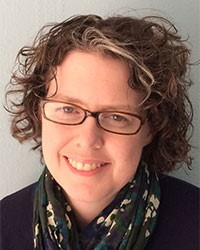
Zach Petroff | Opinions Editor
Sept. 22, 2022
Ellen Gawalt will serve as the first female dean for the Bayer School of Natural and Environmental Sciences at Duquesne University.
Gawalt, the interim dean of the school since July 2021 and a professor at Duquesne since 2003, is a distinguished member of the scientific and academic community. She has degrees from both Duke University and Princeton University, and completed her postdoctoral work at the University of Chicago.
She has won the University Creative Teaching Award and the Bayer School’s Excellence in Teaching Award.
In a news release, Duquesne President Ken Gormley acknowledged Gawalt’s commitment to the study body.
“She is a wonderful collaborator, whether partnering with faculty on a research project or working together with students in the lab or classroom,” Gormley said. “The school’s faculty, staff and students will continue to benefit from her expertise.”
Her work as a surface chemist has been impactful, and she has a plethora of academic articles. She’s also the holder of 10 patents.
As impressive and ground-breaking as Gawalt’s contributions to the scientific community are, her work with students might be her greatest achievement.
“In all of the roles she has held — faculty, department chair and dean — I have found her to be very student-focused and driven by the importance of science and research in society,” said Senior Vice Provost Jeff Miller.
In May, Gawalt co-authored an academic article in the Journal of Chemical Education titled, “The Scientific Method as a Scaffold to Enhance Communication Skills in Chemistry.” The article articulated why soft skills, such as writing and speaking, are needed to be successful in scientific fields. These are skills that could be undeveloped at the undergraduate level.
A proposed solution to this would be to apply the scientific method approach to help understand real-world scenarios. The article says that “the intent is to expand the knowledge of students, and encourage their ownership, sense of curiosity and ability to defend the rationale supporting their work.”
This is one of the philosophies that Gawalt has implemented at the Bayer School.
“We want to make sure our students are supported in the best possible way, so every department has a new career development class this year, whereas before, it was a school class,” Gawalt said. “It wasn’t as tailored to helping students find the pathway that they needed.”
To help first-year students, who may not have fully developed some of the necessary soft or study skills due to the Covid-19 pandemic, the Bayer School is offering freshman courses that are not only about their major. Some classes detail some intricacies of first-year student life, such as how to write an email to a professor or how office hours work.
These courses will bring in the Counseling Center and other offices to make sure that students are aware of everything that’s offered on campus.
Gawalt said that the idea is to “make sure that people are getting assistance they need, [and] not just finding a job, but in feeling comfortable in life and feeling good about themselves.”
“We try to be supportive of our students in all areas,” Gawalt said.
Gawalt is aware of how educators can be a great influence, as she credits a high school teacher for making her want to get into chemistry.
“A teacher made a big difference in my life. I had an excellent high school chemistry teacher,” Gawalt said. “She just made it interesting and exciting and fun to be in her class …
“She just made it come alive for all of us, and I think that makes a big difference to students, whether it be a teacher in high school, a professor at the undergraduate level or even your graduate advisor.”
Gawalt also credits her Ph.D. advisor at Princeton as a major influence in her life.
“He just was very good at making what we did understandable to us … He taught all of us how to be mentors to our students, and I think that’s very important, and I would say that’s what attracted me to Duquesne and why I love working here,” Gawalt said. “All the faculty in the Bayer School care so much about mentoring their students in the classroom, in the laboratory and helping them find their career pathway.”
Whether it’s bringing in alumni for an undergraduate research program instead of outside scientists, proudly keeping all of her previous students’ dissertations in her office or simply trying to explain surface chemistry to a undergraduate student in another school, one thing is apparent: Gawalt’s passion is not only the advancement of her field, but the advancement of all students.
“Mentoring is what we do here in the Bayer School,” Gawalt said.

